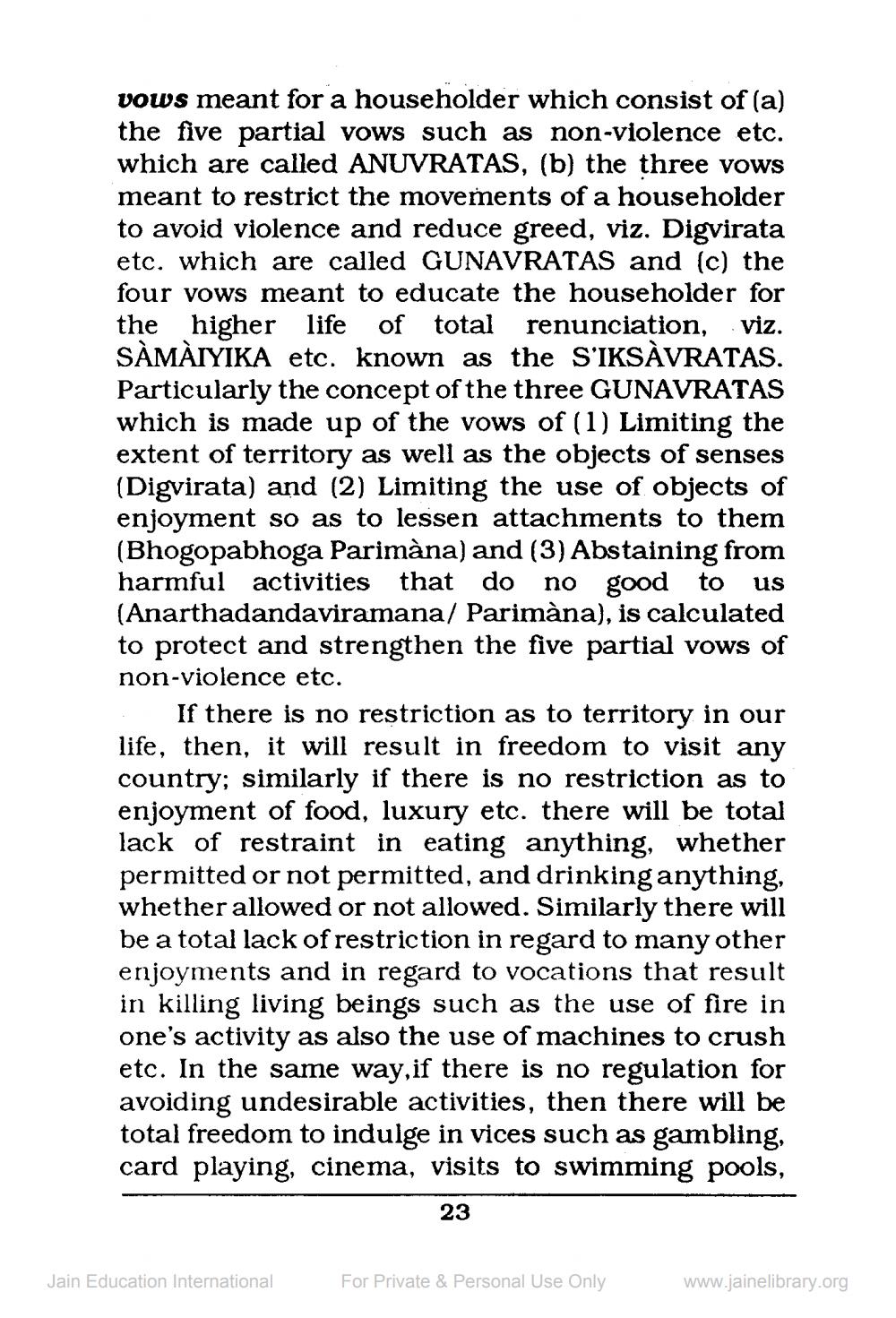________________
vows meant for a householder which consist of (a) the five partial vows such as non-violence etc. which are called ANUVRATAS, (b) the three vows meant to restrict the movements of a householder to avoid violence and reduce greed, viz. Digvirata etc. which are called GUNAVRATAS and (c) the four vows meant to educate the householder for the higher life of total renunciation, viz. SÀMÀIYIKA etc. known as the S'IKSÀVRATAS. Particularly the concept of the three GUNAVRATAS which is made up of the vows of (1) Limiting the extent of territory as well as the objects of senses (Digvirata) and (2) Limiting the use of objects of enjoyment so as to lessen attachments to them (Bhogopabhoga Parimana) and (3) Abstaining from harmful activities that do no good to us (Anarthadandaviramana/ Parimàna), is calculated to protect and strengthen the five partial vows of non-violence etc.
If there is no restriction as to territory in our life, then, it will result in freedom to visit any country; similarly if there is no restriction as to enjoyment of food, luxury etc. there will be total lack of restraint in eating anything, whether permitted or not permitted, and drinking anything, whether allowed or not allowed. Similarly there will be a total lack of restriction in regard to many other enjoyments and in regard to vocations that result in killing living beings such as the use of fire in one's activity as also the use of machines to crush etc. In the same way,if there is no regulation for avoiding undesirable activities, then there will be total freedom to indulge in vices such as gambling, card playing, cinema, visits to swimming pools,
23
Jain Education International
For Private & Personal Use Only
www.jainelibrary.org




